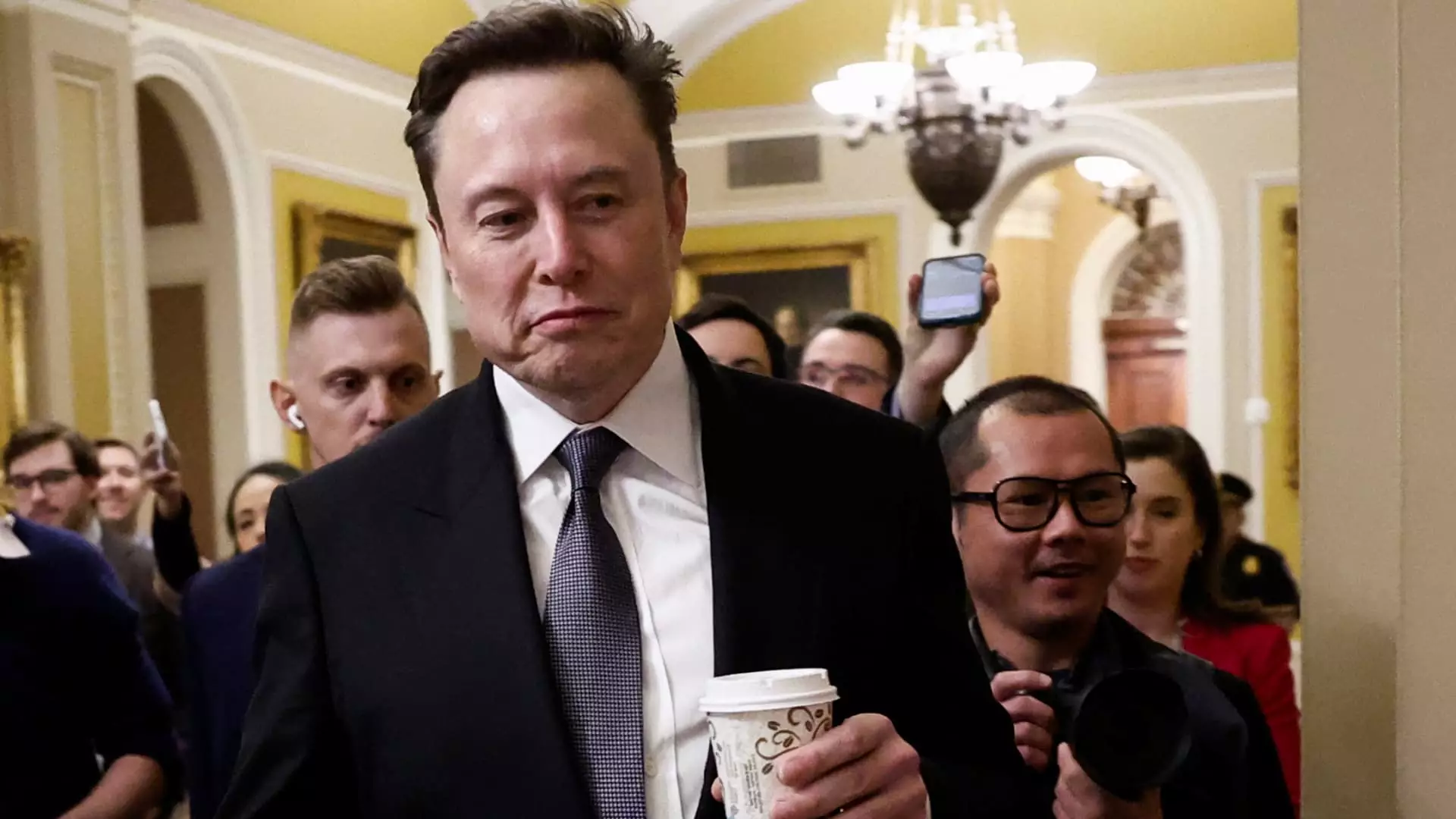The political landscape of the United States has been increasingly influenced by corporate leaders, with Elon Musk emerging as a particularly notable figure. His activities and perspectives not only reflect the intersection of business and politics but also underscore the broader implications of U.S. foreign policy, particularly concerning China. Recent developments surrounding a bipartisan government funding bill illustrate the complexities and controversies associated with Musk’s expanding influence, as highlighted by House Democrats Jim McGovern and Rosa DeLauro.
In a recent series of events, Democrats McGovern and DeLauro accused their Republican counterparts of yielding to Musk’s lobbying efforts, which allegedly contributed to the failure of a bipartisan government funding bill aimed at regulating U.S. investments in China. This halted initiative was integral to safeguarding American technological advancements, particularly in artificial intelligence (AI) and quantum computing, areas where the United States seeks to maintain its competitive edge. McGovern lamented the lost opportunity to enhance U.S. job security in the tech sector, suggesting that Musk’s financial interests in China were a barrier to necessary protective measures.
Musk’s Tesla stands as a significant player in this discussion. As the only foreign automaker with a factory operating independently in China, Tesla’s interests are closely tied to the Chinese market. The expansion of production facilities and the ambition to develop self-driving technology without local partnerships raise questions about the implications for national security and technological autonomy. The Democrats argue that Musk’s priorities appear to favor corporate gain over national interests, painting him as a figure who is more committed to appeasing Chinese authorities than safeguarding American jobs and innovations.
The remarks by McGovern and DeLauro reveal a growing concern about the intertwining of corporate power and national security strategy. Musk’s companies not only shape American technological landscapes but also engage in geopolitics that may undermine U.S. interests. The assertion that Musk is “bending over backwards” to cultivate positive relations with Chinese leadership indicates a potential conflict between corporate strategies and national security imperatives.
Moreover, the withheld services from SpaceX regarding Starlink in the context of Taiwan further complicate this narrative. Taiwan’s status remains a contentious issue in U.S.-China relations, and the optics of a U.S. corporation prioritizing Chinese directives over support for a democratic ally present a troubling picture. DeLauro’s characterization of Musk as someone who has “ingratiated himself” with the Chinese Communist Party raises important questions about the ethical responsibilities of multinational corporations operating within foreign political frameworks.
Musk’s relationship with political figures, particularly with the recent Republican leadership and former President Donald Trump, adds another layer of complexity. His active role in campaigns and his financial contributions to Trump’s political ambitions underline the blurring lines between corporate leadership and political influence. Following the disruption of the funding bill, Musk’s dismissive remarks towards DeLauro exemplify the growing tension between political accountability and corporate power.
The evolving role of Musk as a close adviser to Trump suggests that he is leveraging his corporate successes into political capital. This dynamic showcases the potential risks inherent in a system where individuals with vast financial resources can exert influence over political processes, thus reshaping national priorities.
The unfolding narrative surrounding Musk and his interaction with the U.S. Congress reflects broader concerns about corporate influence over national policy, particularly in the context of international relations. As lawmakers grapple with the implications of foreign investments and the safeguarding of American technology, figures like Musk face scrutiny over their commitments to national interests versus personal gain.
In navigating these complex relationships, it is critical for policymakers to establish clear boundaries that prioritize national security while promoting economic growth. As the U.S. continues to maneuver through its strategic competition with China, the roles of influential business leaders will undoubtedly shape the future of these critical discussions. The challenges ahead will require a delicate balance between fostering innovation and protecting national principles in an increasingly interconnected global landscape.



Leave a Reply